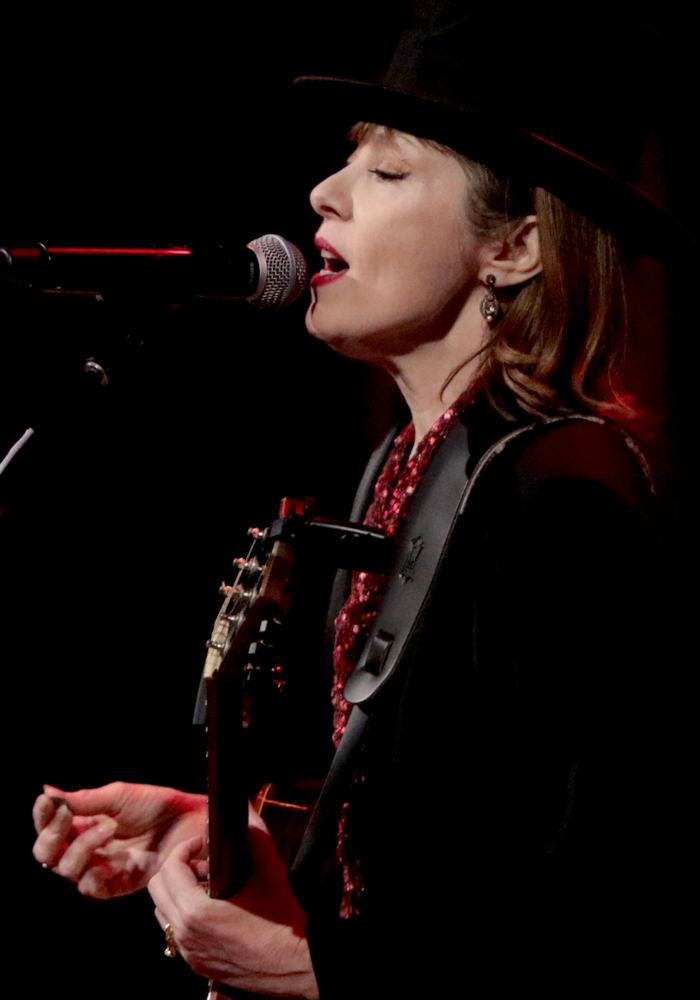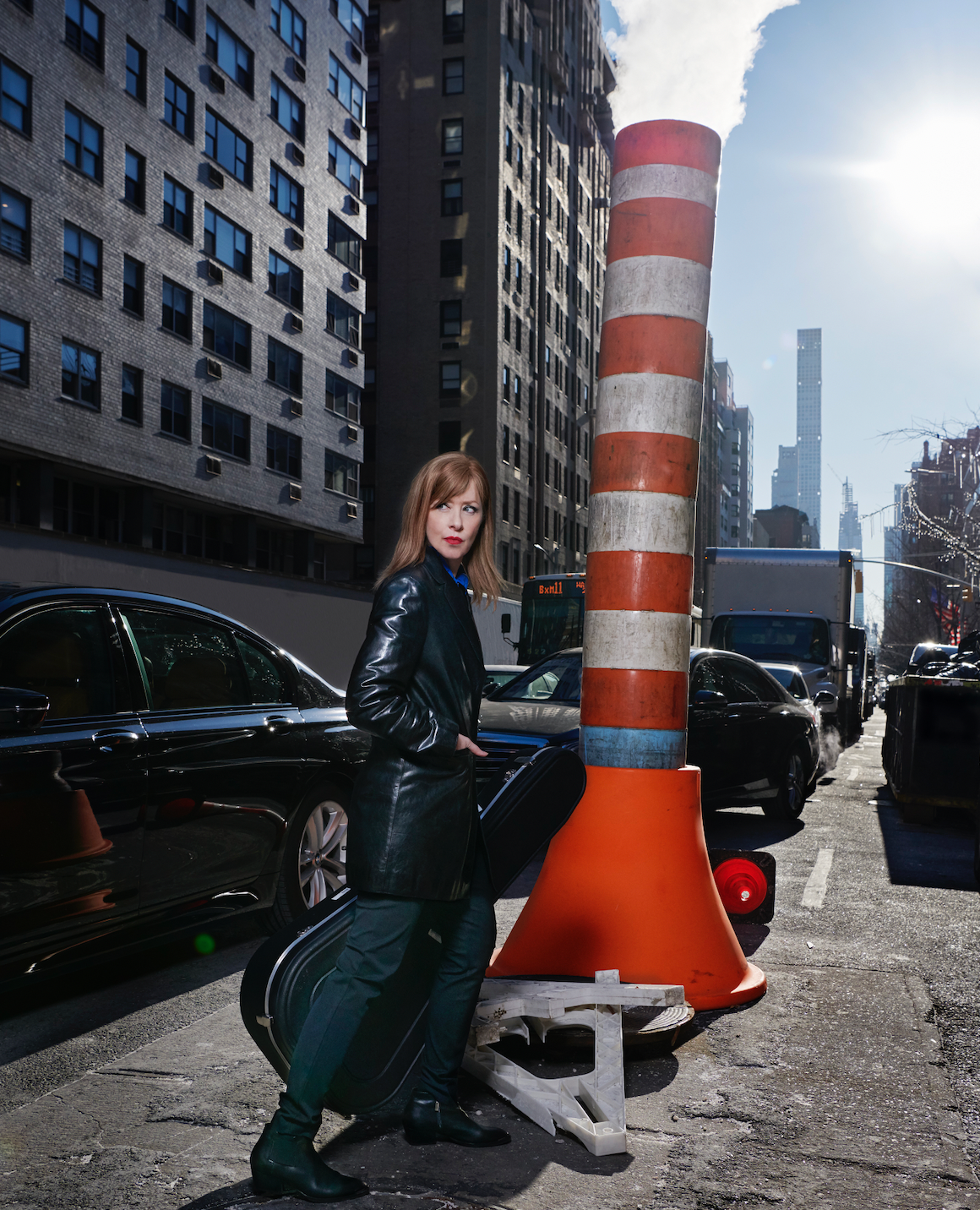One of the most celebrated songwriters of the past four decades, multi-talented New York storyteller Suzanne Vega has recently been busy treating UK audiences to her sublime blend of pop-infused folk, delivering spellbinding performances at the Cambridge Folk Festival and Glastonbury, to mention just a couple. Here, she tells Headliner about returning to the road, her now legendary debut Worthy Farm headline appearance, and her latest foray into the world of filmmaking…
Every Glastonbury headliner will have their own story about the first time they topped the bill at the world’s most iconic music festival, but none can lay a glove on that of Suzanne Vega. In 1989, with hits such as Marlene On The Wall, Luka and Tom’s Diner marking her out as one of the world’s most gifted new talents, Vega became not only the first woman to headline Glastonbury, but also the first artist to do so wearing a bulletproof vest.
“It started the morning of the show,” Vega begins, chatting to Headliner over Zoom, a week or so after her much lauded headline performance on the Acoustic Stage at this year’s Glastonbury. Joining us on the road, she is currently gearing up for a show in Amsterdam following a short bout of Covid from which she has just recovered. “It turned out that my poor bassist, Mikey, who had been stalked by this woman for quite some time, received a death threat that morning, and I didn’t know I was included in that death threat until later in the day. My manager was with us and he had gotten Scotland Yard in on the whole thing. It was being taken very seriously.
“Then, about an hour before we were due to go on stage, the police said not to go ahead; that they had found the woman but not her partner, and their professional recommendation was that I do not do the show. I said, “what are you talking about? I have to do the show, I’m headlining!” They said that in that case I would have to wear a bulletproof vest, so I took one of the Scotland Yard men’s vests, which was of course enormous on me, so they had to gaffa tape me into it. I then went on and did the show, which all felt like it was happening in slow motion.”
Having taken the decision to go ahead with the show, Vega and her band found themselves forced into an all too abrupt ending to their set, albeit for entirely separate circumstances to those that had threatened to derail the performance.
“Right at the end of the show, my keyboard player ran over to me and said, 'Sing Luka and get off stage!' I was like, ‘Oh my god, what’s happened?’ and he said he’d tell me later but to just play the song and get off the stage. So, we played Luka and left the stage. No one had mentioned to me that there was a curfew. Glastonbury is a cow farm, and it upsets the cows if you play past 12.30, and they don’t give milk in the morning. This is what had happened and that’s how the evening ended! And there was a whole bunch of mud and traffic, so it took about five hours to get off the site! There are some things I’ll never forget, and that show was one of them. There were helicopters flying overhead and the lights would be trained on the audience. Every time they went on the crowd, I was scanning to see what was going on.”
While other artists may (understandably) have opted to pull the performance, Vega insists that there was never a question about whether or not they would take to the stage. But how did it feel to play what was already set to be a landmark show to such a dramatic and potentially perilous backdrop?
“Once I’d committed to it, I just stuck with it and didn’t allow myself to think about anything other than playing each song,” she recalls with an almost matter of fact indifference. “Each song felt like it was 20 minutes long because time became elastic. And spatially it was weird for me because I was used to seeing Mikey, but he was playing off the stage flanked by two guards. I remember just feeling myself going through each song, probably didn’t talk very much, which I didn’t do much at festivals anyway. And then I had that weird ending [laughs]!
“The situation ended there - I don’t know what happened to the girl or her partner, but they never surfaced again. But Mikey had security for some time when we went on tour, so that lingered for about a year.”
As for her 2022 Worthy Farm set, proceedings were thankfully far less eventful.
“It was great, I always enjoy performing at Glastonbury,” she smiles with a delivery as cool as her unmistakable vocal sounds in song. “And this year was extra special because my daughter was with me and her father, Mitchell Froom, was playing with Crowded House, so she got to spend the whole weekend with both of us, which hardly ever happens, so it was really great.
“And I’m really looking forward to playing the Cambridge Folk Festival. I like the folk festivals. I’ll try not to be too abrasive – I’m playing with a guitar player called Gerry Leonard, he was David Bowie’s musical director, so we don’t always stay within the bounds of folk. I only play acoustic guitar, but we sometimes venture into other kinds of music. We’ll try not to be antagonistic and do all the folky stuff that everybody likes.”




